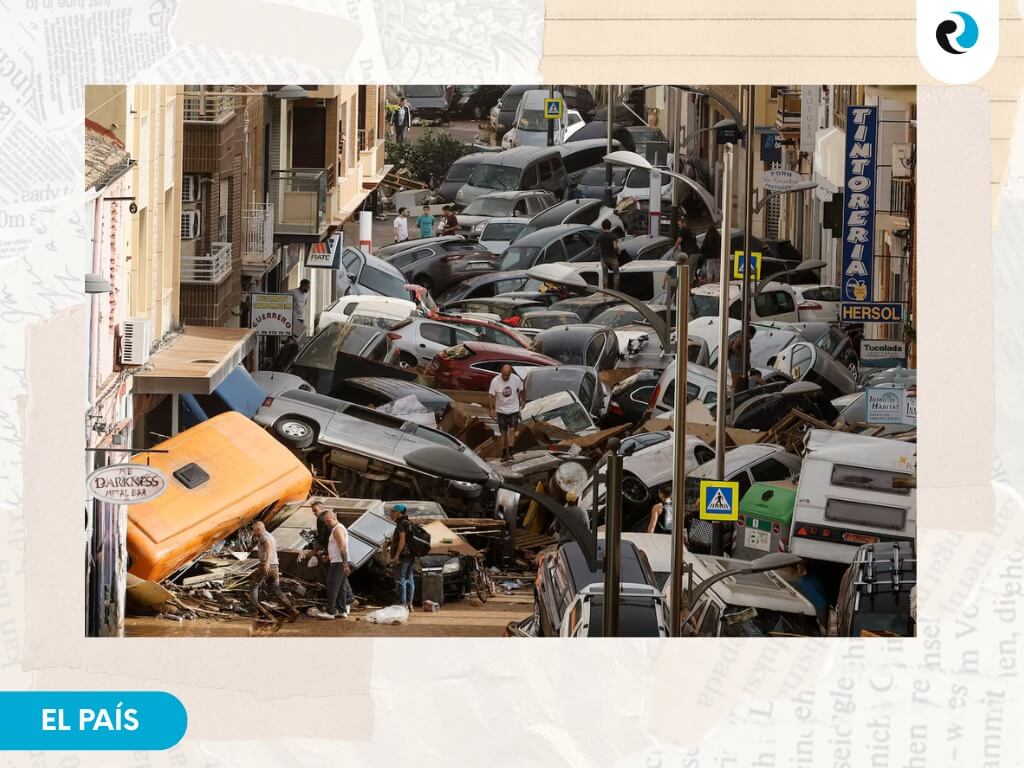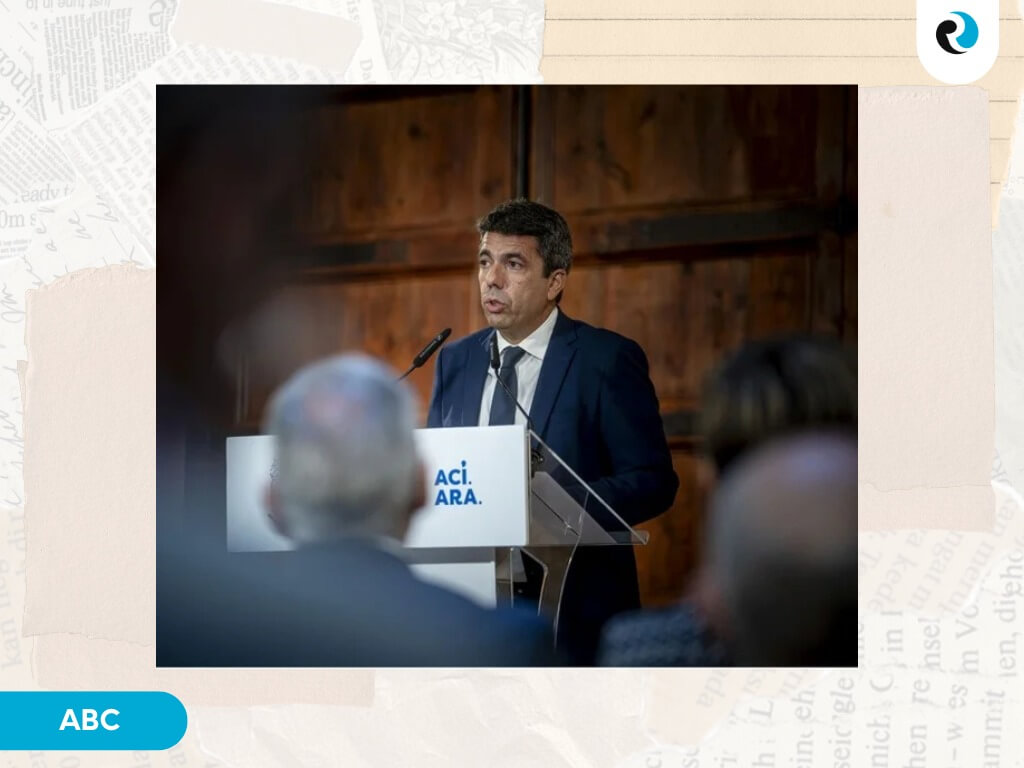Some crises define political careers, and others destroy them.
The crisis of Carlos Mazón, until recently president of the Valencian Generalitat, undoubtedly belongs to the latter group.
What began as a natural disaster—the DANA storm that struck the Valencian Community in October 2024—ended up becoming a full-blown reputational crisis: institutional, emotional, and political.
The problem wasn’t just the meteorological disaster itself, but the way the narrative surrounding it was managed.
For months, Mazón tried to maintain the legitimacy of his leadership with technical explanations and administrative gestures.
But what society demanded was not information, but empathy, presence, and accountability.
This emotional distance ultimately broke the bond of trust between the president and the citizens.
His resignation, on November 3, 2025, comes as a consequence of a prolonged, visible and public erosion, which transcends the political to settle in the most difficult terrain to rebuild: reputation.

From the DANA storm to a reputational disaster
The moment the leader disappeared
On October 29, 2024, a DANA storm devastated the Valencian Community.
The torrential rains caused more than 200 deaths, displaced thousands, and resulted in millions of euros in damage.
However, it wasn’t the natural disaster that brought down Mazón’s leadership: it was his symbolic absence.
As the emergency escalated, the president was having lunch with journalist Maribel Vilaplana.
The news—and the image—spread like wildfire. Within hours, Mazón was no longer the crisis manager, but its negative protagonist.
In public reputation, time is more powerful than truth.
When emotional perception takes precedence over technical explanation, the narrative becomes irreversible.

Three structural flaws in reputation management
1. The absence of visible leadership
In crisis communication, the first public appearance sets the emotional tone for the response.
Mazón was slow to appear, and when he did, he adopted a bureaucratic style, laden with technical jargon.
Amid the grief, this communicative distance was interpreted as coldness, not prudence.
Leadership is not measured solely by decision-making, but also by symbolic presence.
Citizens needed a president who embodied calm, not a mere spokesperson.
2. Emotional disconnection
Throughout the following weeks, Mazón insisted that the Generalitat had followed the established procedures.
The problem wasn’t what he said, but what he didn’t say: he never offered a clear apology, nor did he make a gesture of profound institutional mourning.
The victims and their families interpreted this omission as a sign of indifference.
In reputation management, empathy is not an add-on: it is the core of credibility.
3. The incoherence of the story
The conflicting accounts of his movements and the contradictory statements from his inner circle created a sense of disorganization and opacity.
When a government changes its narrative, it loses not only political authority but also moral reputation.
Public opinion does not forgive inconsistency; it translates it into distrust.

Europe observes: institutional reputation at risk
The Mazón case has been closely followed in Brussels and Strasbourg, where it is analyzed as an example of how poor communication management of a humanitarian crisis can affect the institutional image of a region.
The European Commission has stressed in recent reports the need for regional administrations to integrate emotional communication strategies into emergency protocols, not just logistical plans.
In European offices, the Valencian case is already being cited alongside others such as the floods in northern Italy or the seismic crises in Greece, under the same lesson:
“Infrastructure can be rebuilt with money, but trust can only be rebuilt with truth and empathy.”
Resignation: a political tactic, not moral redemption
On November 3, 2025, Mazón appeared to announce his resignation.
The speech was brief, controlled, and emotionally flat.
He acknowledged mistakes but did not take direct responsibility.
His most repeated phrase—”They have every right to express themselves as they see fit”—was interpreted as detachment and resignation, not remorse.
From a reputational standpoint, the resignation was inevitable, but insufficient.
It neither restored trust nor alleviated public outrage, because it came without any visible act of empathy.
In crisis management, closing the cycle isn’t achieved with an administrative gesture, but with emotional restitution.
And Mazón never offered that.

Social pressure: when the street sets the agenda
For months, more than 200 social organizations and victims’ groups held weekly protests.
What began as a demand for explanations transformed into a sustained citizens’ movement demanding the president’s resignation.
The demonstrations were not only massive, but also symbolic: they took place in front of the Generalitat building, with candles and photographs of the victims.
The slogan “Mazón resign” ceased to be a mere rallying cry and became a social commentary.
Political reputation collapses when citizens not only stop believing in you, but also stop listening to you.

The Vilaplana case: ethics, perception and symbol
The personal connection between Mazón and journalist Maribel Vilaplana—who was present during the most critical moment of the DANA storm—became a symbol of the disconnect between power and reality.
Although there was no legal wrongdoing, the public perception was devastating: it portrayed a leader distracted while his community suffered.
In public reputation, images are judged not by their veracity, but by their meaning.
And in this case, the meaning was clear: absence, frivolity, and irresponsibility.
Reputational keys: lessons for contemporary leadership
● Moral legitimacy precedes political power
No position protects against loss of credibility.
Authority is sustained by symbolic legitimacy, and this is built on consistency and empathy.
● Transparency is not a value, it’s a practice
Citizens don’t demand perfection, they demand clarity.
Every contradiction or defensive nuance is interpreted today as opacity or manipulation.
● Empathy is not something you can improvise.
Leaders who do not cultivate empathy in calm times cannot fake it in times of crisis.
● Accountability is communication, not punishment
Publicly acknowledging mistakes, apologizing, and explaining decisions strengthens credibility; hiding them destroys it.
Conclusion: the Mazón case as a mirror of an era
The downfall of Carlos Mazón is not just a story of personal mistakes, but an institutional warning: in the age of immediate information, you cannot govern without communicating, nor communicate without feeling.
Europe observes, citizens judge, and the victims—as always—remember.
When management becomes technical and communication becomes defensive, reputation has already begun to decline.The challenge for future leaders will not only be to govern well, but to govern with humanity.

